I always thought it would be cool to see a bear close up. Since my first visit to Canada way back in 2005, seeing a bear has been on my bucket list. I am a huge animal lover. I generally like animals more than people, so animal sightings or encounters have generally always brought me joy…until now.
Recently I spent a few days out in Maple Ridge at my friend’s house near Golden Ears Provincial Park. It is beautiful out there, so peaceful and chilled. Wildlife is abundant here, and what I didn’t realize was that a black bear encounter was a real possibility.
Before they left my friends even joked to me about how bears had been by but it was highly unlikely that I would see one. All 3 of us just shrugged it off and I didn’t spend any time learning what to do if one showed up.
So this is everything you need to know about Canadian Black Bears in case you ever encounter one close-up like I did.
Close Encounters Of The Bear Variety
I had got into a routine of chickens, morning coffee outside, and bunny cuddles. This particular morning had just felt off. I had done the chickens faster than usual, decided against sitting outdoors for my coffee and debated bringing bunny indoors.
But even that morning when something felt off I still had zero fear that a bear would turn up. I was completely unprepared, and frankly really scared and freaked out when I looked through the patio doors and saw a massive black bear in the back garden with a pet. I hope that no one ever has to see what I saw. It was too late for the pet, literally nothing I could do as it was gone BUT I could try and save the other animals.
What’s unreal is that it had targeted a domestic pet. It had learned how to get into pet hutches easily and was adept at climbing fences and gates.
I went to the door furthest away from it which wasn’t far enough and made noise. It stared at me for a while, ran a couple of meters away, and came straight back. It knew that there were also chickens and of course, there was me. Black bears generally won’t attack humans, but I was terrified.
It just kept coming back over and over again, casually exploring all of the garden and looking at the chickens. I had just been in the garden feeding the chickens and checking on the rabbit minutes before. I was just relaxing drinking my coffee before rabbit cuddles. It’s been hard knowing that if the bear had showed up a few minutes later bunny would have been indoors with me.
Black Bears In British Columbia
There are three species of bears in Canada, and the American black bear is the most common. Black bears are widely distributed throughout Canada, and British Columbia has some of the biggest populations of black bears in the world. British Columbia is considered a “bear country” because there are roughly 120 to 150 thousand black bears living in the coastal temperate rainforests as well as in the dry interior.
Although it is called the black bear, they come in a variety of colours; black, most shades of brown, and the white Kermode bear. Vegetation makes up most of their diet but they are omnivorous so they also eat fish and meat. They have a very strong sense of smell so they can locate food at great differences.
Bears are most active from April to November, but in milder climates, or where they are continuously finding food, bears may not go into their dens.
Reporting Bear Sightings In British Columbia
There are around 14,000 to 25,000 calls per year to the Conservation Officer Service about black bears.
Most bear encounters will result in the bear going away BUT they can become more assertive or destructive when they have learned to associate humans and their activities with food.
All bears that are aggressive, and sightings in urban areas, should be reported to the Conservation Officer Service (1-877-952-7277).
These reports can be viewed on WildSafeBC’s Wildlife Alert Reporting Program.
Tips To Avoid Bear Encounters
Depending on where you go in British Columbia, you may encounter a bear on your travels.
Here are some tips to reduce the chances of surprising a bear or encountering a food-conditioned bear:
Look out for signs of bears: Things like scat, tracks, freshly overturned logs, fresh claw marks on trees
Make noise by talking or singing: Be on alert at all times and be especially cautious around running water, thick brush or high winds that could mask your presence. Bear bells do not travel far and are not recognized as human so your voice at a decent volume will be far more effective.
Stay alert and don’t wear headphones: If you go hiking, biking, or running in Bear Country leave your headphones in your bag or at home.
Be careful with food: Don’t leave any food or organics in the wild. Pack away everything including things like apple cores and banana peels and dispose of them away from wildlife areas. Food will attract wildlife to the roadside which may result in a vehicle collision.
Don’t go on solo hikes: It is far safer to travel with at least one other person because it results in more noise, and it could stop the bear from approaching.
Keep your pets on a leash and under control in bear country: Dogs are involved in about 50% of black bear attacks and inflicted injuries on humans. Bears may see them as a threat or prey.
Be extra vigilant in bear habitat: Also be super careful where sightlines are rubbish. Places like berry bushes, streams with salmon, and known bear areas put you at higher risk of encountering bears.
Leave the area immediately if you find a carcass: Call the Conservation Officer Service on (1-877-952-7277) and/or the landowner.
Carry bear spray and keep it close to you: You will need to be able to access it quickly so don’t carry it in your pack or on your bike.
Educate Yourself About Canadian Black Bears
Learn about bear country and where you may encounter a bear through WildSafeBC’s Wildlife Alert Reporting Program. Before visiting provincial parks, check for wildlife alerts. Go to visitor centers when you travel around British Columbia to get information on local wildlife activity.
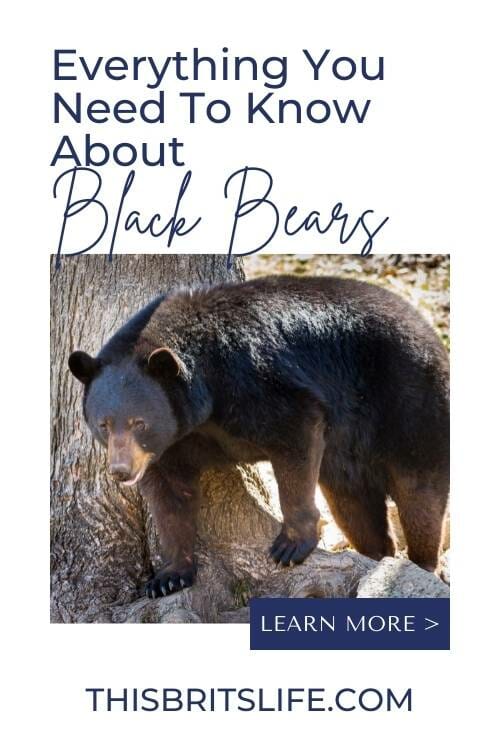
Black Bear Encounter Safety Tips
If you see a black bear, here are some basic tips to stay safe.
Never feed bears: It’s against the law in British Columbia to feed dangerous wildlife. This also means not leaving any food or remains of food (including packaging) outside, and not putting the garbage out overnight. Garbage, compost, food…it will all attract bears and keep them returning.
Keep calm: Don’t run or try to climb a tree. Just slowly back away, talking to the bear in a quiet, monotone voice. Do not scream, turn your back on the bear, kneel or make direct eye contact.
Keep your distance: Don’t try to get close to it. If the bear is too close to you, use pepper (7 meters or less) or something else to threaten or distract it. So keep pepper spray on you in areas where bear encounters are possible.
Stay together: If there are other people with you, stay close together as a group, and keep children as close as possible. Small children should be picked up and carried.
Get inside: If it’s possible, get indoors and bring any pets with you that you can.
Watch the bear: You need to watch it until it leaves. Make sure it has a clear escape route. Then after the bear is gone and it’s safe, make sure there is nothing in the area that will attract bears back again.
Make Noise: If a bear has been in your surroundings like your garden, or there is a possibility of bears making noise if you need to go outside. I had to go outside and secure pets after the bear had left and was told to make lots of noise like banging pots and pans to make my presence known in case the bear was watching.
Tips For Bear Encounters In The Wild
If you encounter a black bear in the wild, try and stay calm and still. Whatever you do, do not run.
Generally, black bears are wary of humans and will avoid us. They are more inclined to run into the forest and engage. BUT it depends on the situation because a bear defending a kill, or a female bear with cubs could be protective and predatory.
If they approach quietly and intently, as the bear did with me, it is showing predatory behavior.
The bear’s behavior determines how you should respond.
A bear that is unaware: Leave the area quietly. Keep an eye on the bear while you return to where you were. Have your bear spray handy just in case you need it quickly.
A bear that is aware: But not reacting to your presence. Speak softly, and back away slowly. If the bear leaves, let it do so and do not follow it. Avoid eye contact.
A bear that seems agitated: An unhappy bear will make jaw-popping, moaning, or woofing noises. It may stomp the ground or bluff charge. The bear is telling you that you are too close and is behaving defensively. Trust me this is scary to experience so keep as far back as you can. You may want to run at this point but you need to stay calm, speak softly, and just back away. Watch the bear but do not make direct eye contact. Get your bear spray ready as you may need it.
If the bear does charge at you, stand your ground and use your bear spray when the bear is 5-10m away. You may be knocked down but usually, the bear will stop before it makes contact.
A bear approaching you steadily: Slowly yield to the bear in case it just wants the path you are on. If it keeps approaching you you may be in danger because it could be predatory. Yell at the bear, get onto higher ground, and get ready to fight for your life if the bear attacks you. Use bear spray as soon as the bear is close enough (5 to 10 m).
Black Bear Attacks
If you are being attacked by a black bear try and escape slowly and calmly to a secure place; a building with doors you can lock or a car.
No matter what kind of attack it is bear spray, and knowing how to use it, will increase your chances of avoiding contact with the bear.
Defensive Bear Attack
If you can’t get away and the bear is attacking you defensively, it’s usually due to a surprise encounter and a bear protecting itself, its food source, or its cubs.
The best defense, if it is a defensive attack by a black bear or grizzly that knocks you down, is to lie still on your stomach, protect the back of your head by clasping your hands, and spread your feet slightly to avoid being rolled over.
The bear will stop attacking you if it’s a defensive attack when it feels you are not a threat anymore. If it stops attacking you just stay still. Do not get up till the bear has left the area.
Predatory Bear Attack
If the attack does not stop and the bear tries to consume you then you are dealing with a predatory attack. To survive you will have to fight the bear with everything at hand by focusing on the bear’s face, eyes, and nose. Just focus your kicks and blows on the bear’s face and muzzle for the best chance of survival.
It is possible for a human to fight a black bear and survive.
Pets & Livestock Safety Tips
Pet Homes
Keep feed secured indoors. Keep chickens and small livestock in at night. Use electric fencing to protect your chickens and small livestock.
Apiaries, chicken coops, and runs should be protected by electric fencing that is kept energized day and night.
Vulnerable young and small animals should be kept close to the home and need to be protected with electric fencing. Just having them in typical animal hutches and runs is not sufficient and will put them at risk.
The goal is to essentially make it as difficult as possible for a bear to get anywhere near your animals.
Pet Food
Keep pet food in airtight, non-odorous containers inside residences (house or garage). Never leave pet food unattended outside. If you feed your pets outside, always bring the food and food bowls inside between feedings.
Protecting Yourself, Pets, Livestock & Property
There are a few things that you can do to minimize bear visits to your property.
- Keep any crops, orchards, and vegetable patches as far away from naturally occurring food sources as possible (berry bushes, streams, etc).
- Remove or thin out bushes and trees that can be a “comfort zone” for bears.
- Put fencing up around your gardens and crops
Human-Sourced Bear Attractants
These are the main things that could attract a bear onto your property:
- Bird Feeders
- Domestic Fruit
- Fruit Producing Landscape
- berry Producing Shrubs
- Garbage
- Compost
- Barbeque
- Pet Food
Electric Fencing
Bears can learn how to climb fences and gates, and as I discovered recently, can figure out how to get into pet hutches.
So electrical fencing was recommended by the Conservation Officer as a good way of preventing bears from entering a property or animal area. Particularly where there are multiple homes near each other, the risks of bears can increase because it only takes one person’s compost or rubbish or animals to attract a bear.
Useful Tips From BC Residents
- Eye contact, super firm voice, and demanding stance followed by bear spray. Make sure you ask him with a firm voice to leave first, then the bear spray so that he associates the two. Just remember to shoot low and raise, and shoot downwind and use your voice. A very important part that some people forget. There are a few good bear spray videos on YouTube that may make you feel more confident.
- Use a super soaker from a safe place – Fill a super soaker with diluted vinegar and aim not at the eyes but at the forehead. The idea of the super soaker is to make sure you don’t obscure their vision but have the vinegar run into their eyes a little. The sting will make them respect you.
- A scarecrow sprinkler – $60 bucks
- A garden hose and electric mat
Permissions To Hunt A Bear In Self Defence
If a bear harasses, menaces, or kills any domestic animals including farm livestock or birds on your property in British Columbia then you can hunt it.
This is what you need to know about shooting a bear to protect yourself, your animals and birds or your property in BC.
- Any bear hurt accidentally or for protection is the property of the British Columbia Government (Section 26(2) of the Wildlife Act. Under Section 2 (Property in Wildlife) – section 2(4))
- You must report the killing or wounding of the bear or any other wildlife. Failure to do so is a criminal offense. (Section 75 of the Wildlife Act)
- You must comply with all the Municipal, Provincial, and Federal laws surrounding the use and discharge of firearms or the setting of traps.
- You will be liable for any wildlife that is wounded or injured as a result of you exercising your rights. You are legally responsible for any misuse of firearms.
- You may be able to get hunters from the local Rod and Gun Club to assist you if hunting season is open for bears at the time and in the location of the occurrence.
- Scare devices may also be an option to try and help protect livestock against bear attacks which you can get from local feed stores.
- Keep livestock and poultry locked inside a barn or coop at night if a bear is in the area.
- If livestock is killed or injured call the COS Call Centre at 1-877-952-7277 (RAPP)
Useful British Columbia Wildlife Resources
Conservation Officer: 1-877-952-7277 (RAPP)
WildSafeBC’s Bear Sighting Reports: Wildlife Alert Reporting Program.
Black Bears in British Columbia Fact Sheet
Books
Living With Bears Handbook, Expanded 2nd Edition
Black Bear: North America’s Bear
Boot Polish, Bears and Bush Sense: Adventures of a British Columbia Conservation Officer
In the Company of Bears: What Black Bears Have Taught Me about Intelligence and Intuition
Talking with Bears: Conversations with Charlie Russell
I hope this post has been helpful. My close encounter reminded me that you just never know what is going to happen, and things could have easily turned out differently. So even if you think this could never happen to you, still educate yourself about the wildlife in the places that you visit. Your future self may thank you for it.
Have you had any close encounters with wildlife? Share your stories in the comments if you have.
Learn More About Canada
- Lessons Learned From Living Abroad In Canada
- Ultimate Quick Guide To Canada
- Everything You Need To Know About Canadian Black Bears
- Canadian Tax Return: What You Need To Know To Make It Easy
Share Me
If you found this post helpful, share it or pin it! It’s one of the best ways to show your support. Thank you!
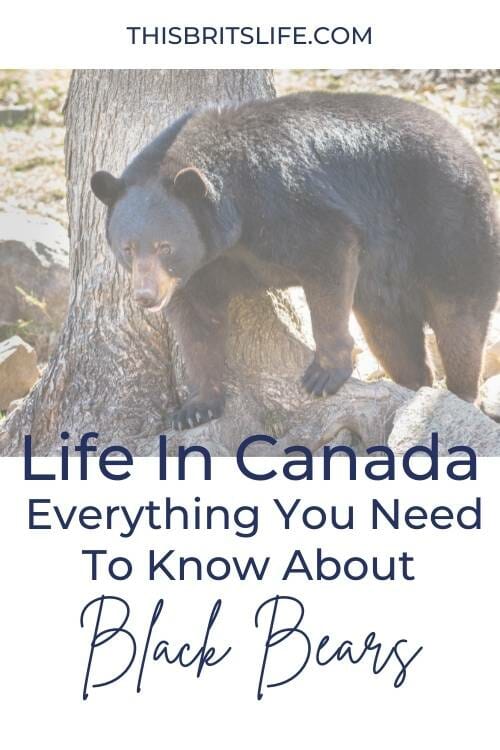
Gemma Lawrence is a British expat, solo female travel blogger, and the creator of This Brit’s Life — a travel and lifestyle blog that helps women explore the world confidently, live abroad independently, and stay informed about global issues.
Born and raised in England, Gemma has been living in British Columbia, Canada since 2016 and has been traveling solo for over a decade. With a background in journalism and over ten years of experience in digital marketing and communications — including leadership roles with the International Association of Business Communicators (IABC/BC) — she brings both storytelling and strategy to her writing.
Through her posts, Gemma shares practical solo travel advice, expat insights, and confidence-building resources, while also covering broader topics like women’s rights, democracy, and self-care. Her goal is to inspire independence, awareness, and personal growth — one adventure at a time
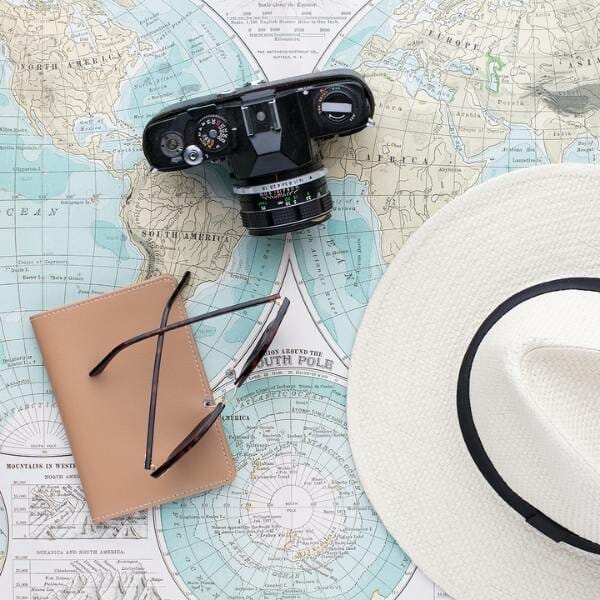
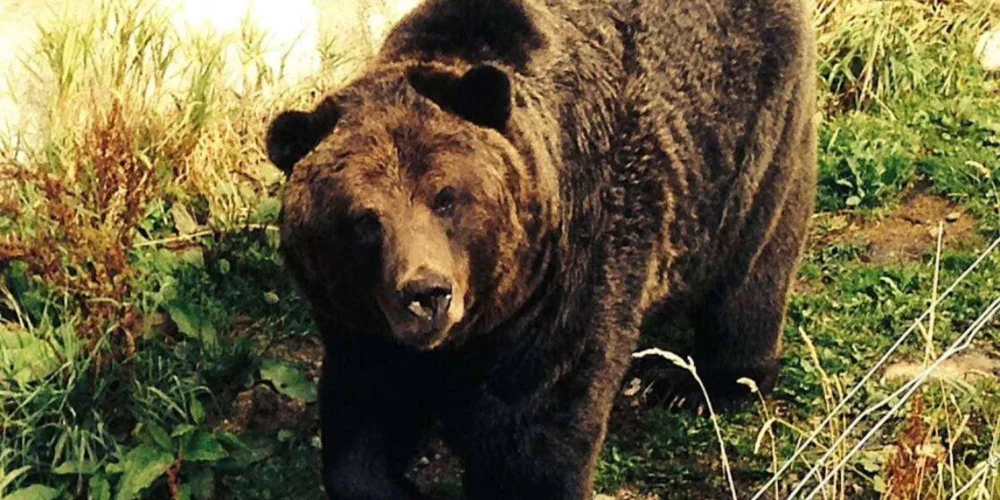
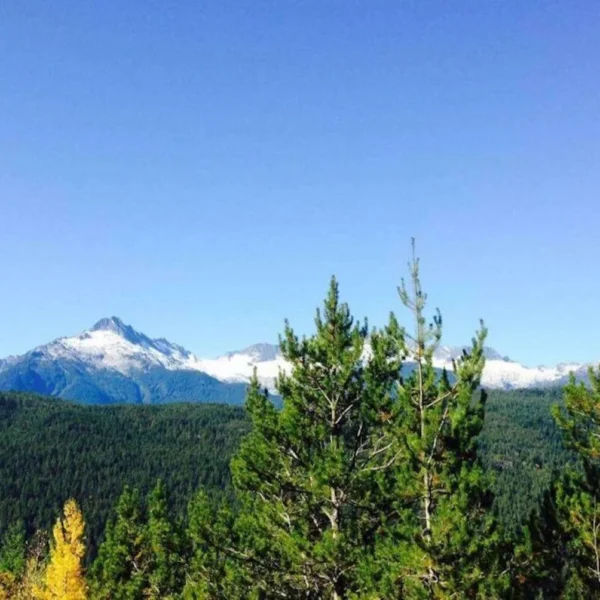


Leave a Reply